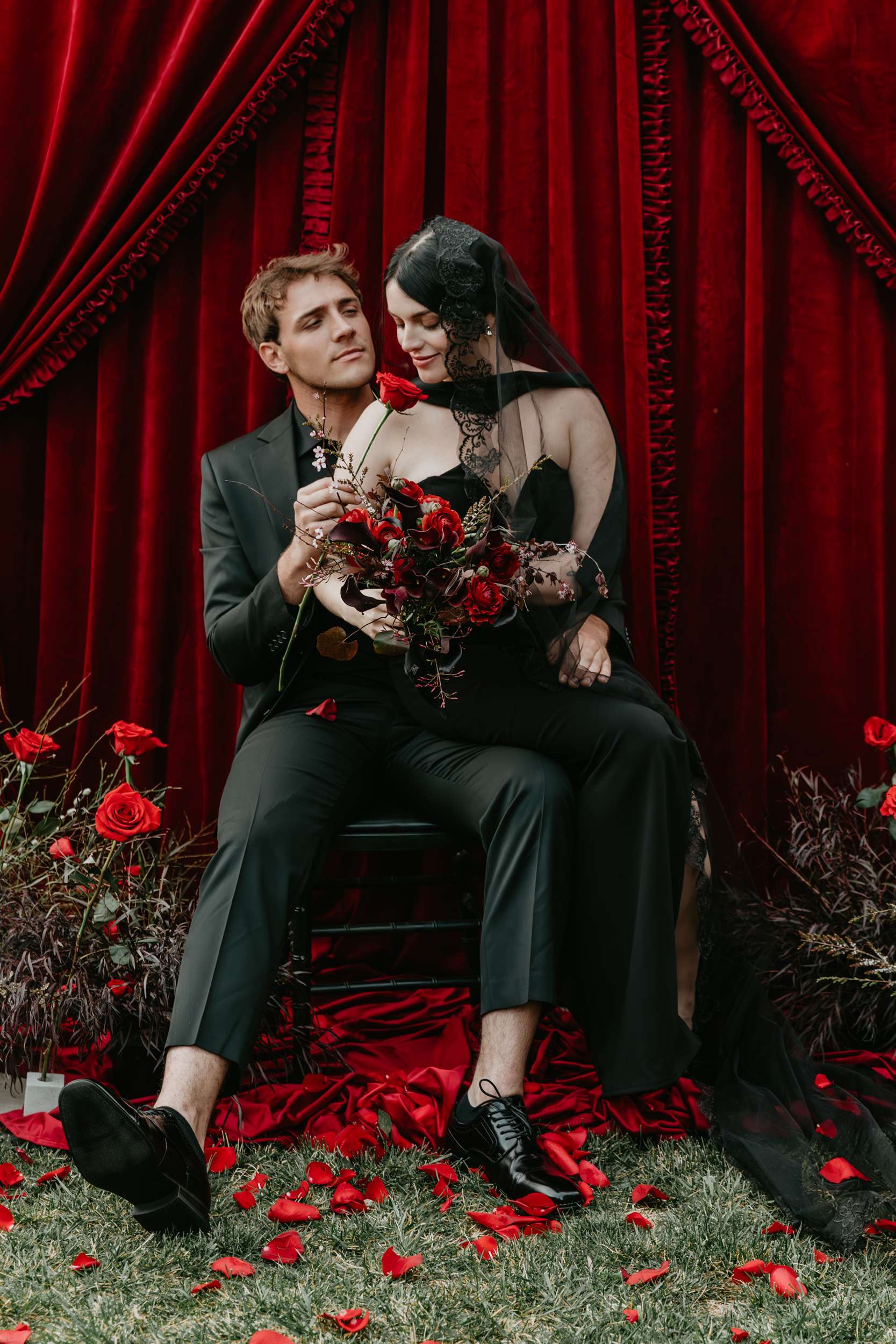
There’s a lot of noise around AI right now, from fears about job losses to concerns over ethics and the environment. But like it or not, AI isn’t going anywhere. So rather than bury my head in the sand, I figured it was better to use my platform to help you understand it – and hopefully show you how to use it responsibly, creatively, and in a way that helps you plan the wedding you actually want.
I use AI in my business every day. It helps me consolidate and brainstorm ideas, proofread copy, check spelling and grammar, write awkward emails, draft client pitches and so much more. Honestly, I think a lot more people in the wedding industry use AI than would ever admit.
There are some incredible AI tools for business out there. You can use it to take notes during video calls (a literal game-changer), chase unpaid invoices, or issue quotes. These kinds of tools make our businesses more efficient and leave more time and space for the creative stuff.
AI is just a tool, like Outlook or Google. The key is knowing how to use it properly. You still have to engage your brain. Don’t just copy and paste whatever it spits out. If you want great results, you have to work with it – not let it do all the thinking for you.
Important side note: Just because I find some aspects of AI helpful doesn’t mean I support all of it. I personally don’t love the idea of using fully AI-generated images in place of hiring a human artist (the images in this article are not AI!) It takes work away from talented people who are often not well paid as it is. The recent Google Veo 3 videos are absolutely terrifying, too. Soon it won’t just be out of touch Boomers who can’t tell the difference between AI and reality. The way this can – and undoubtedly will – be used to spread misinformation and propaganda in the future scares the shit out of me. Plus there’s the whole ethical discussion about AI being trained on real artists’ work…

So yeah, this is a nuanced topic for sure, but because planning a wedding can feel like a full-time job (except you don’t get paid and everyone has an opinion!) I would be remiss to not share what I’ve learned and help you utilise it in the best way yourselves too.
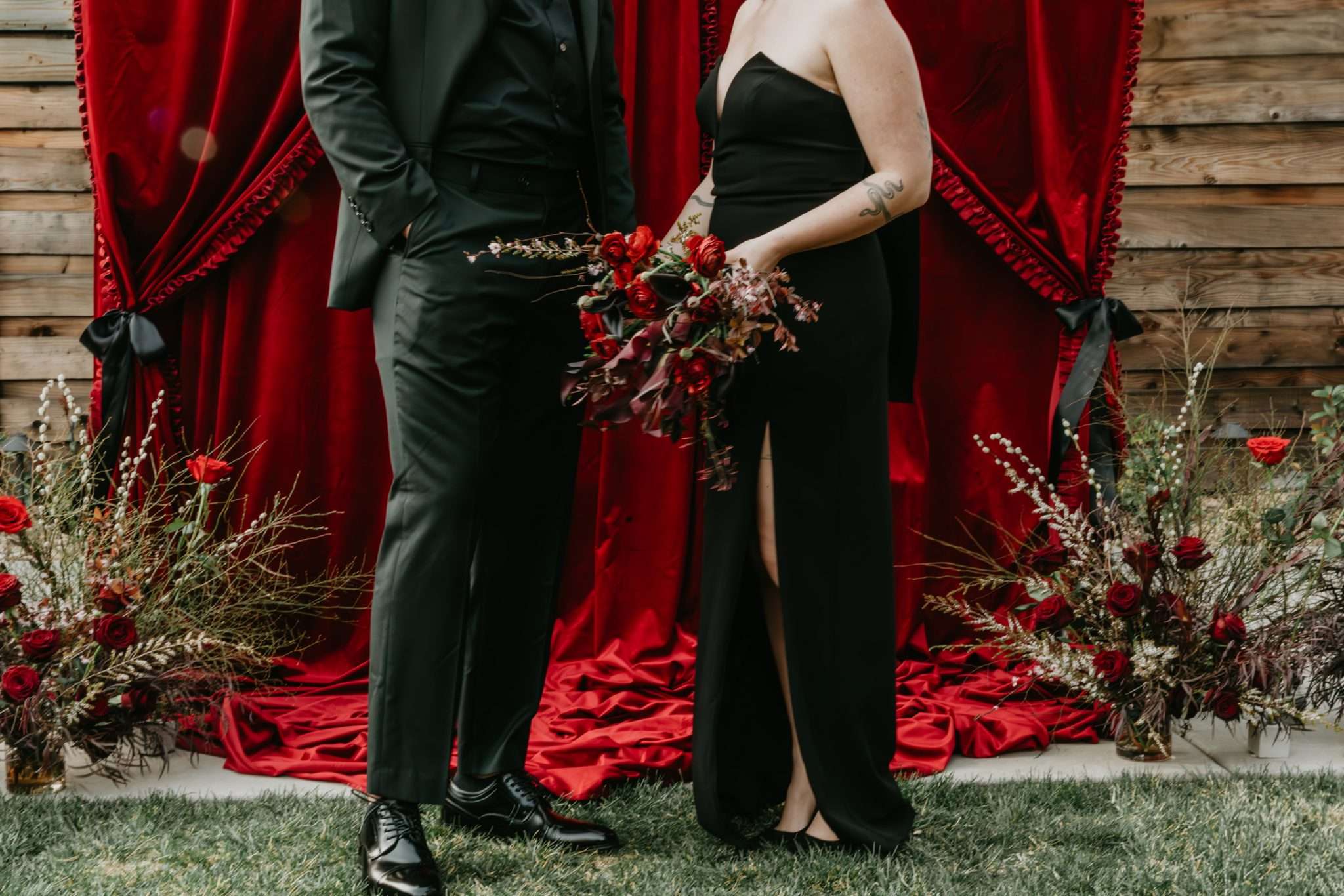
1. Get Organised
AI isn’t here to replace your personal style or your suppliers, it’s here to make the boring, repetitive, and overwhelming stuff easier, so you can focus on the fun bits! There are AI-powered planning tools out there which can help you do everything from creating timelines, checklists, and even tracking your RSVPs.
Joy has an AI powered tool to help with wedding writer’s block, Zola offers a custom GPT to help couples divvy up wedding planning tasks, and Wedsites uses AI to help you build a wedding website in minutes.
2. Brainstorming
Think of AI – ChatGPT specifically – like the best brainstorming buddy you’ve ever had. The one who doesn’t judge your weird ideas, never gets tired of your “what if we…” tangents, and won’t roll their eyes when you say, “OK but hear me out: smoke bombs and a medieval sword ceremony.”
The key to getting the most out of AI is something called prompt engineering – in other words, knowing how to ask questions to get the best possible results. The more detailed you are and the more raw info you feed it, the better (and more natural-sounding) the answers will be.
So instead of asking, “What wedding theme should I have?”
Try something like: “Can you give me 10 wedding theme ideas that combine Studio Ghibli and 1970s glam rock?”
3. Writing Vows, Speeches etc
In the same way, you can use ChatGPT to help you with anything you might need to write for your wedding – vows, speeches, even the wording on your invitations. To get the best and most natural results, use a strong, specific prompt, and then take the results as a starting point, rewriting it in your own voice.
Instead of just saying “write my wedding vows”, start by jotting down some personal notes – what you want to say, key phrases, inside jokes, stories or moments that matter to you. The more specific the better.
Then try something like:
“Use this information to write some emotional but funny, non-cheesy wedding vows. Keep the tone neutral, don’t use unnecessary adjectives or adverbs and do not resort to clichés. Avoid any sentences that set up and negate or expand beyond expectations (like ‘X isn’t just about Y’ or ‘X is more than just Y’). Instead using direct, affirmative statements. Feel free to be creative with your sentence structures and expression styles.”
This way, it’s still your voice just with a little help smoothing it all out. Once you get the results, you can tweak and edit, or ask it to change certain things until its perfect.
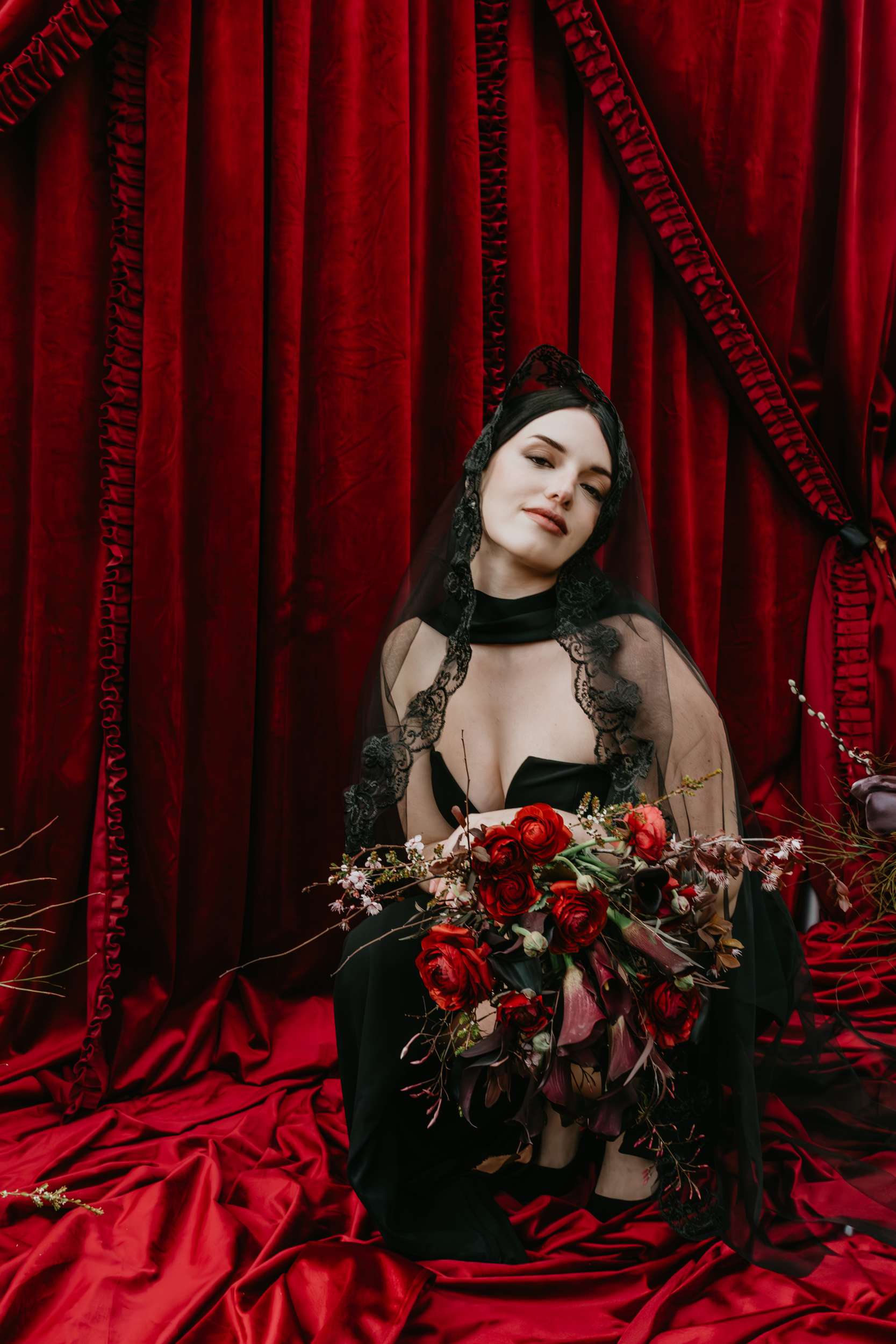
4. Vendor Communications
Reaching out to vendors, comparing quotes, and negotiating costs can be one of the most intimidating parts of wedding planning, especially if you’re a people-pleaser who breaks into a cold sweat at the thought of saying, “That’s a bit out of our budget.”
AI can help you navigate this with confidence. You can ask ChatGPT to:
🤖 Summarise quotes from multiple vendors so you can easily compare what’s included (travel, setup, VAT, extras, etc.)
🤖 Draft initial enquiry emails or write follow-up messages when you haven’t heard back or want to clarify something
🤖 Politely negotiate when a quote is too high (“We love your work but our budget is a little tight. Would you be open to a shorter package or custom option?”)
🤖 Understand contracts and decode legal jargon or contracts. Just paste the text into ChatGPT and ask it to explain it in simple terms. Total game-changer.
Ask ChatGPT to write the email as if you’re talking to a real person (because you are), then tweak the wording to reflect your personality. You can even ask it to adapt your message to match your vibe – friendly, formal, funny, whatever works for you.
5. Creating Visual References or a Moodboard
This is definitely a bit of a controversial one but AI art generators can actually help you visualise wedding or theme.
You can generate colour palettes, stationery ideas, or even mock up your venue layout using ChatGPT. To reiterate, I’m not advocating for using the AI in place of then hiring a professional. I’m suggesting you use it as a brainstorming tool and then take these ideas to a pro to make them a reality. If you do, the possibilities here really are endless.
Some of your wedding suppliers are probably extremely visual people, so if you can mock up and show them the sort of thing you’re after (colour palettes, floral arrangements, reception décor etc) it can actually be hugely beneficial. Plus, you’re actually coming up with the ideas yourself rather than just recreating something you found on Pinterest.
I actually do this a lot. I used it to help mock up the style of dress I wanted a designer to make for a shoot last year, and again during our rebrand to show the sort of vibe we wanted for the new logo. (I think my exact words to our designer were: “The vibe of this… but less shit please.”) It is so much easier to communicate my ideas in this visual way, rather than just trying to articulate it.
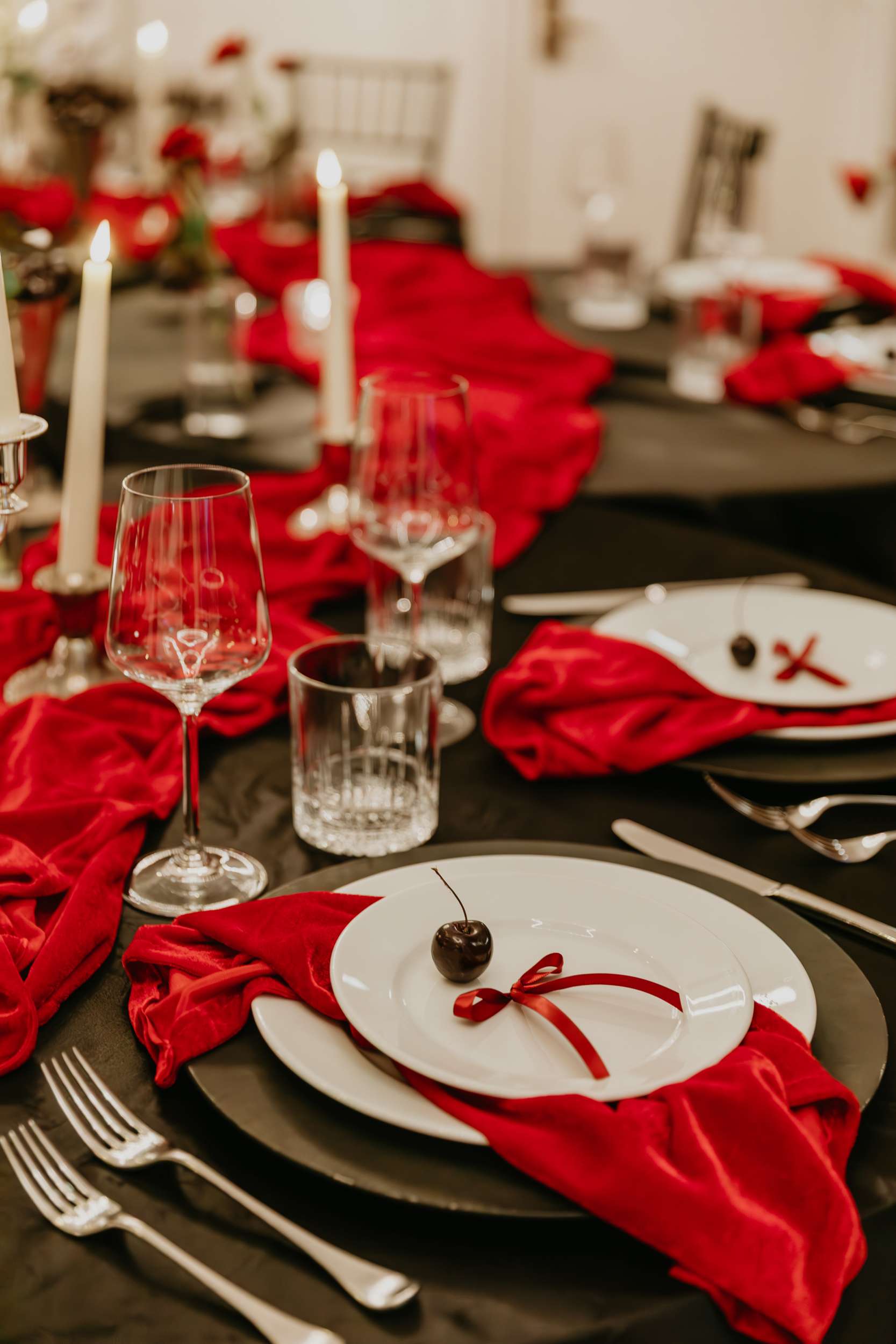
6. Simplify Tasks
This is a massive benefit for people with ADHD, autism, or anxiety. AI can take overwhelming chunks of information (like a giant wall of text – ugh!) and break them down to just the important bits. It can also take a big task list and break it into manageable steps for you.
7. Vendor Suggestions (Use With Caution)
Something new we’ve noticed with the latest versions of ChatGPT is that it can now make specific brand or vendor suggestions! Ask it for UK-based wedding photographers who shoot on film, or eco-conscious dress designers who specialise in plus sizes, and it’ll give you a shortlist.
But – and this is important – the results can be hit or miss.
Some of the vendors it suggests are brilliant. Others? A bit out of date, or based on old data. Remember: AI doesn’t have an opinion, its just taking data from the internet. I’ve seen it suggest businesses that no longer operate, link to broken pages, or include brands that I would never personally recommend to anyone! It doesn’t browse the internet in real time, so always follow up with your own research.
Before you book anything AI suggests:
🤖 Check the vendor’s actual website or socials
🤖 Read recent reviews
🤖 Ask to see full galleries or portfolios
🤖 Get real-life recommendations from people you trust
AI can be a great starting point – but it’s not a substitute for good old-fashioned due diligence. (Because if your wedding florist turns out to be a defunct Etsy shop from 2018, you can’t blame the robot.)
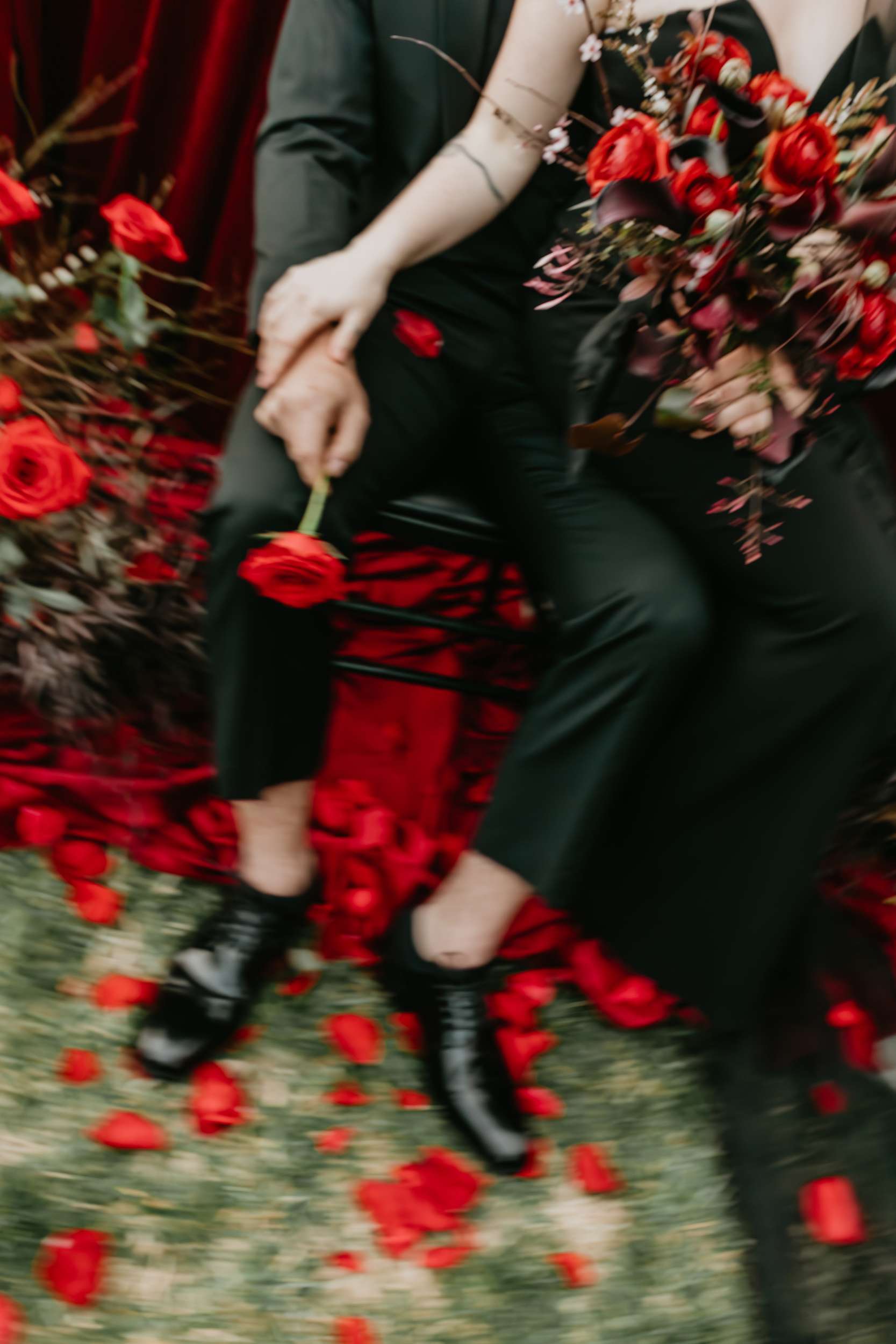
But Wait… Isn’t Using AI Kinda Controversial?
A lot of AI tools are trained using content scraped from the internet, often without permission. That means your AI-generated invite suite might be built on unpaid labour from real artists and designers.
There’s also growing concern that AI is taking work away from small businesses – copywriters, illustrators, stylists, etc who already work their arses off in a tough industry. If everyone opts for free AI-generated solutions, it could undercut the very people who bring the wedding world its edge and soul.
And then there’s the environmental impact… AI runs on giant data centres that use a lot of electricity and water to stay online and keep cool. Every time you generate an image, ask for inspiration, or run a query, it’s adding to that footprint.
A 2023 study estimated that about 500ml of water is used for every 20–50 prompts in ChatGPT. On a small scale, that’s doesn’t seem like that much, but globally, that adds up fast. While it’s tricky to compare directly, tools like Google Search or Netflix also rely on data centres, so they’re not off the hook either – but the point stands: AI has a footprint. If you’re trying to keep your wedding (and your life) more eco-conscious, it’s worth factoring that in.
Can You Trust Everything AI Says? (Short Answer: No.)
While AI can be brilliant at saving time and helping you brainstorm, it’s not always accurate. ChatGPT doesn’t “know” facts the way a search engine does. It doesn’t browse the internet in real time, it generates answers based on patterns in the data it was trained on. Which means:
🤖 Sometimes it’s spot-on but sometimes it completely makes stuff up.
🤖 Sometimes it says it with such confidence, you won’t even realise it’s wrong until you’re trying to explain to your officiant why your cat can totally legally be your witness.
These little missteps are called hallucinations and they’re common. So what do you do?
🤖 Double-check anything factual, especially legal stuff like marriage licence rules, prices, or supplier details.
🤖 Cross-reference sources. If AI gives you a stat or fact, Google it before you use it anywhere.
🤖 Use it for inspiration, not gospel. AI is best for drafts, outlines, and getting you unstuck – not for anything that needs to be 100% true.
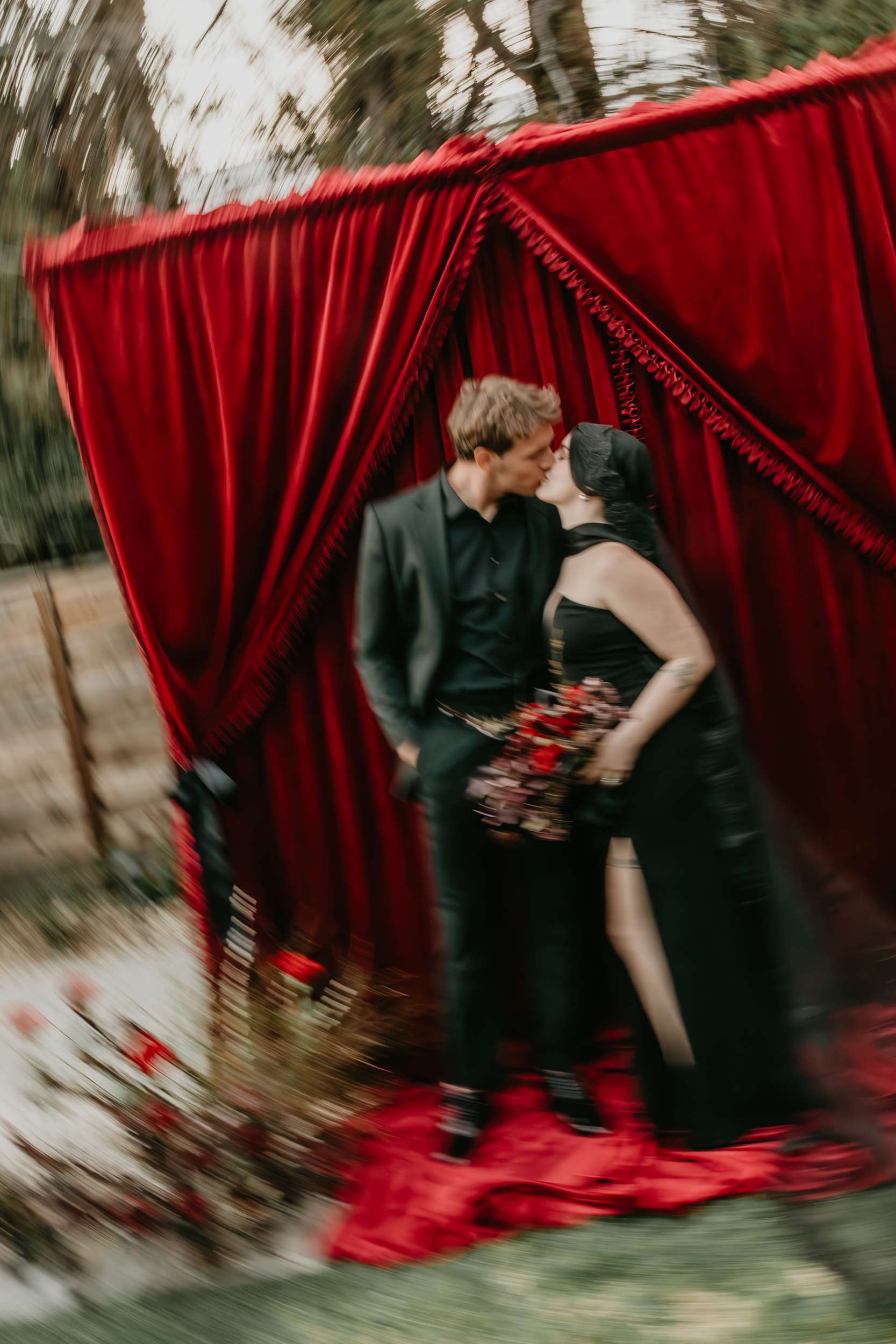
AI can be a game-changer for wedding planning – as long as you treat it like a creative sidekick, not a replacement for real creativity and real humans.
Don’t forget: your wedding is made meaningful by people – the ones who show up and support you, and the ones who pour love into the details. So don’t use AI to replace those people, use it to make everyone’s lives easier. Use it to wisely… or not at all. Because, as always: your wedding, your rules.
Suppliers
- Photography: Alyssa Keys Photography
- Planner & Design: Relic Events
- Hair, Make-Up & Wardrobe: Courtney Sage Makeup
- Dress: Lulus
- Flowers: Golden Flowers Floral Design
- Lighting: AVL Entertainment
- Rentals: Tin Roof Farmhouse
- Venue: National Enchange Hotel, Nevada City, CA
